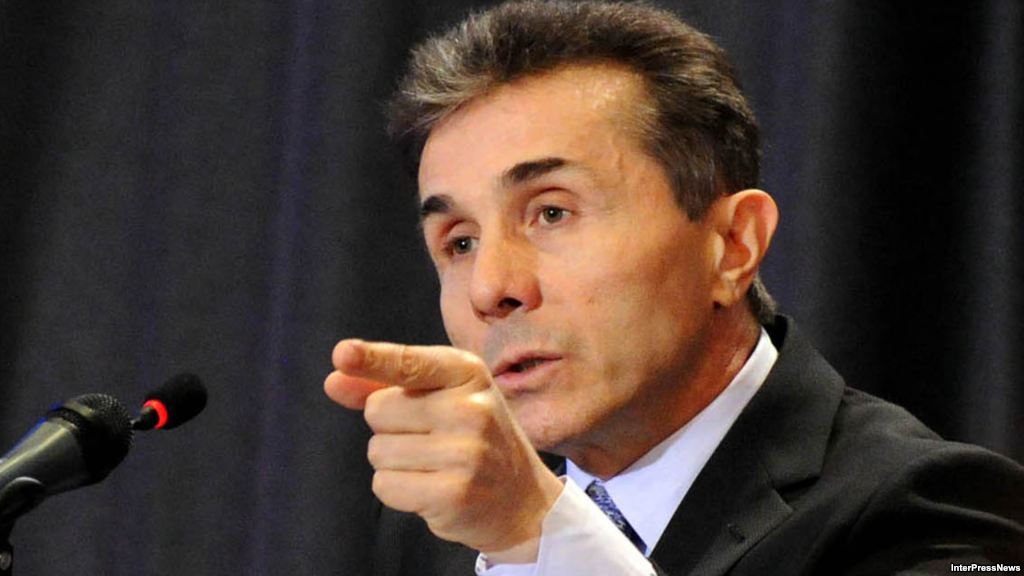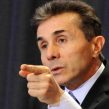
Is Ivanishvili’s Visit to the US Postponed or Canceled?
Publication: Eurasia Daily Monitor Volume: 9 Issue: 218
By:

Prime Minister of Georgia Bidzina Ivanishvili stated that his trip to Washington, which was scheduled for the end of November, would not take place. The head of the government explained the decision as stemming from technical issues and his busy schedule. However, there is every reason to believe that the true cause for dropping the plans for the visit are linked to the mutual discontent that appeared in bilateral relations after a series of arrests of several close associates of President Mikheil Saakashvili.
Ivanishvili made the announcement about scrapping plans to visit the United States on November 22, at a large press conference with over 150 journalists present (https://rustavi2.com/news/news_text.php?id_news=47369&pg=1&im=main; https://dfwatch.net/georgian-pms-visit-to-us-postponed-49243). Ivanishvili decided to make this announcement personally, given the high domestic public interest for Georgian leaders’ visits to the US and their meetings with Washington officials. Ivanishvili provided an ambiguous and unclear explanation for why he decided not to go to the US at the end of November as had been announced earlier. “A few days ago I visited Europe. Even though we had announced prior to the visit to Europe that my visit to the USA was planned at the end of November, the European visit showed that during the 3–4 days of my absence from the country, serious issues appeared in our team. There are many unresolved issues, for example, the vertical of power needs to be strengthened,” Ivanishvili said. Then he added that the visit was not canceled, but only postponed for an uncertain period of time. “Negotiations about the visit’s timing will start in 2013, and the American side received our decision with understanding,” the head of the government added. Yet, Ivanishvili failed to answer a journalist’s follow-up question about who exactly the prime minister had planned to meet in Washington if the visit had proceeded.
This question was posed because the expert community already expressed doubts about whether Ivanishvili could have expected to meet with US President Barack Obama at the Oval Office. According to unofficial information, the White House had not confirmed such a meeting would take place, only affirming meetings with other officials from the administration, including those from the Department of State. However, according to the traditional perceptions in Georgia, an aspiring Georgian leader’s visit to the US cannot be considered successful if the politician fails to secure a meeting at the White House.
Perhaps the uncertainty about this issue became one of the reasons for the visit’s failure. The failure was especially glaring since President Mikheil Saakashvili, who is considered to be the main political rival of the Prime Minister Ivanishvili, was always received in the US at the highest level (https://internet.ge/?l=EN&m=2&sm=0&ID=3123). At the same press conference, Ivanishvili noted that lobbyist companies hired by President Saakashvili to advance his interests in the US “vigorously act and distort the view of [our] Western colleagues on what is going on in our country.” Prime Minister Ivanishvili did not mention, however, that for the past year he also paid several million dollars to American companies to lobby his interests (see EDM, April 4).
Instead of Bidzina Ivanishvili, on November 29, the Minister for Foreign Affairs Maia Pandzhikidze went to the US where she met with Secretary of State Hillary Clinton. Pandzhikidze has recently stated that Georgia’s orientation toward Euro-Atlantic integration would not shift despite the change of government in the country. “NATO [The North Atlantic Treaty Organization] and the European Union are the only international organizations that Georgia wants to join,” the foreign minister asserted while answering whether the Georgian leadership was considering joining the Eurasian Union, established by Russian President Vladimir Putin (https://www.kommersant.ru/doc/2066087).
However, the unexpected cancelation of Ivanishvili’s visit to the US sends a somewhat different signal to observers in the US, Europe and Russia who attentively follow the news about the Georgian prime minister’s foreign policy evolution. “Whatever the prime minister says about considering the US his primary partner, he canceled his visit and does everything to deteriorate Georgia’s relations with the West,” independent expert on foreign relations Mikhail Tavkhelidze told Jamestown. Tavkhelidze did not consider Ivanishvili’s explanations for the cancelation plausible, and the expert is not alone in his opinion that the real reason behind scrapping the trip was Washington’s concern over the latest events in the country, including the series of arrests of people close to Saakashvili (https://www.civil.ge/eng/article.php?id=25461) as well as preparations for the arrest of the head of the president’s United National Movement party, Vano Merabishvili (https://dfwatch.net/merabishvili-may-be-investigated-67284).
During his recent visit to Tbilisi US Assistant Secretary of State Philip Gordon openly expressed his discontent. “It is important to avoid selective justice” he cautioned after meetings with both sides of the political standoff (https://www.civil.ge/eng/article.php?id=25458). NATO Secretary General Anders Fogh Rasmussen was even more straightforward during Bidzina Ivanishvili’s recent European visit (see EDM, November 27). “I am very concerned about politically motivated arrests in Georgia,” Rasmussen said during the Parliamentary Assembly of the North Atlantic alliance in Prague, commenting on the arrest of former Minister of Defense Bachana Akhalaia (https://www.civil.ge/eng/article.php?id=25436) and the acting Chief of General Staff, Brigade General Georgi Kalandadze (https://www.civil.ge/eng/article.php?id=25443). Later, during their joint meeting in Brussels, Ivanishvili tried to explain his government’s legal motivations for the arrests to the NATO Secretary General and even proposed that the Alliance dispatch a special fact-finding mission to Georgia. But the proposal was declined.
People around the prime minister do not consider the cancelation of his Washington visit or the statements by Assistant Secretary Gordon and Secretary General Rasmussen to be “a wake-up call.” “In the West there is a certain tradition of expressing support for Saakashvili that was created at the time of the ‘Rose Revolution.’ Soon they [the West] will receive fuller information about events in Georgia and understand that Bidzina Ivanishvili is the true leader of our country,” Georgian expert Georgi Khukhavhili told Jamestown.
It appears Ivanishvili’s team is waiting for the end of 2013 with impatience, when the second and last presidential term of Mikheil Saakashvili will be over, thinking that he is the primary culprit of “misunderstandings” between them and the West. However, one year is a long time in politics, especially in the Caucasus where political processes tend to unfold rapidly. That is why at the November 22 press conference, Ivanishvili also did not rule out the possibility that President Saakashvili’s powers would be cut in the spring of 2013 as part of the accelerated constitutional reform (https://www.civil.ge/eng/article.php?id=25471). It is unclear, however, whether this will be enough to alleviate the increasing doubts in the West.




